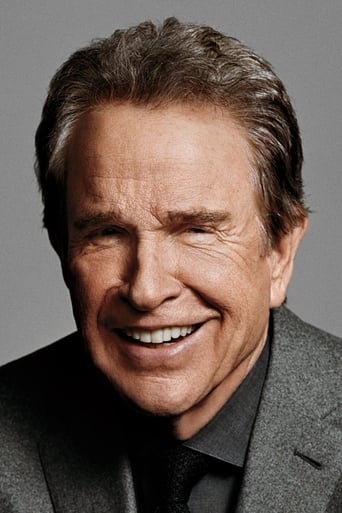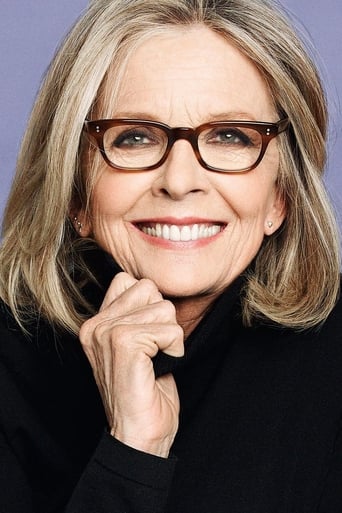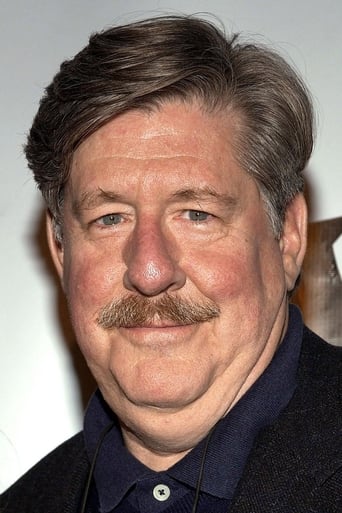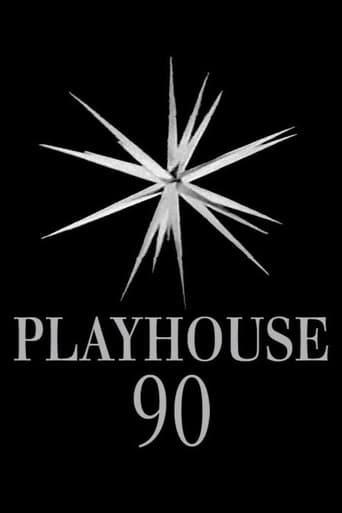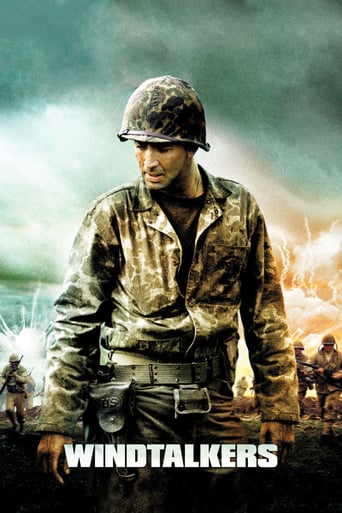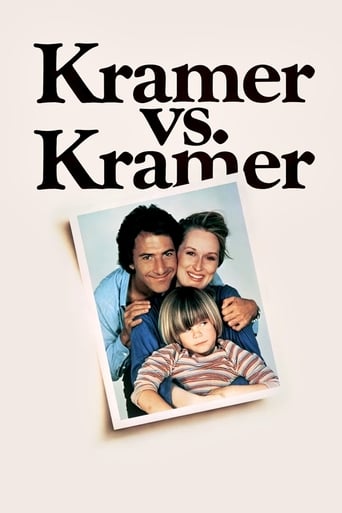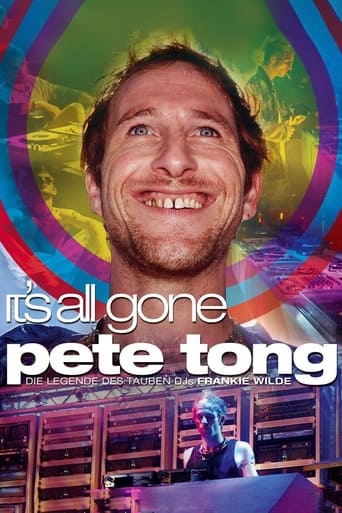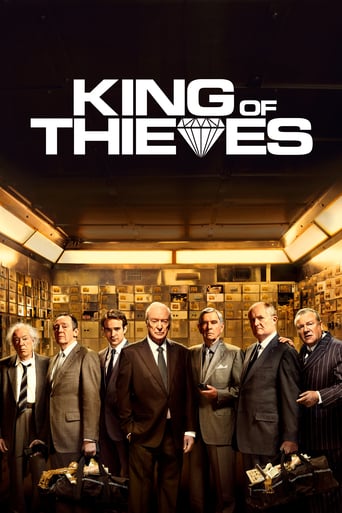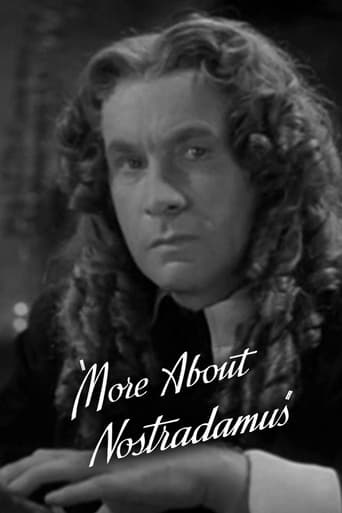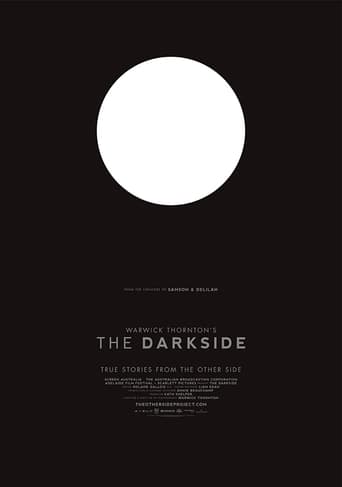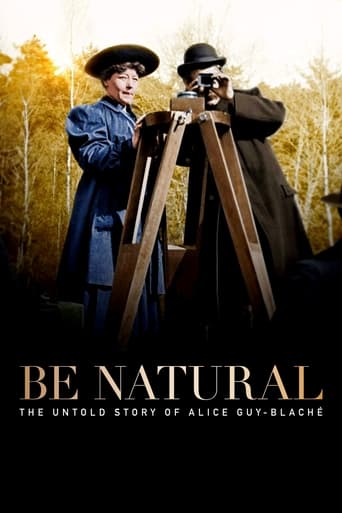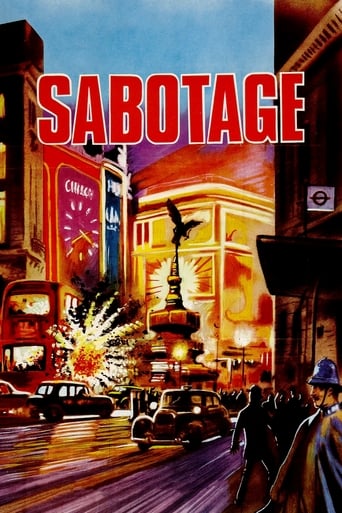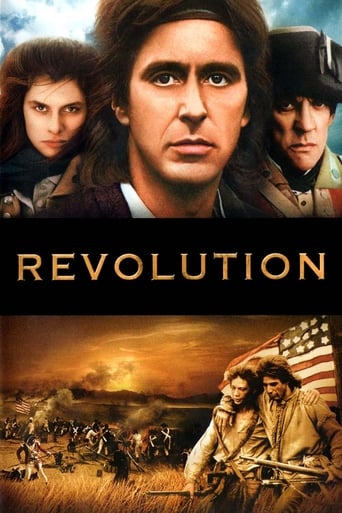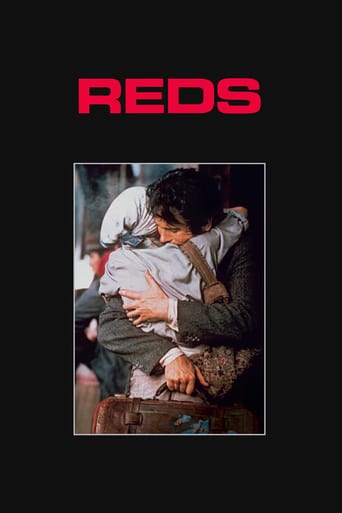
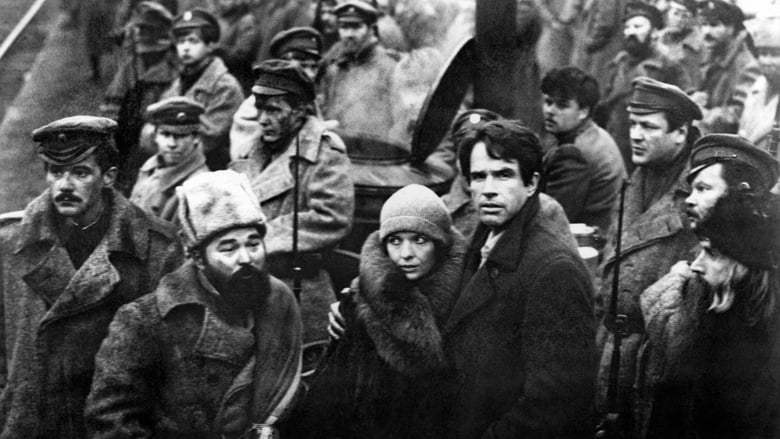
 Watch Now
Watch Now




Reds (1981)
 Watch Now
Watch Now




An account of the revolutionary years of the legendary American journalist John Reed, who shared his adventurous professional life with his radical commitment to the socialist revolution in Russia, his dream of spreading its principles among the members of the American working class, and his troubled romantic relationship with the writer Louise Bryant.
Watch Trailer
Cast


Similar titles
Reviews
You won't be disappointed!
Sadly Over-hyped
This is one of the best movies I’ve seen in a very long time. You have to go and see this on the big screen.
One of the worst ways to make a cult movie is to set out to make a cult movie.
This is one of those great epic movies that for mysterious reasons are never shown on TV and are pretty much forgotten / unknown by the general public. It manages to mix successfully a love story with its turbulent historical background, in a way that I found even more convincing and less sentimental than Doctor Zhivago.I had the chance to watch it again after many years and I was truly surprised by how good it still is. It tells the story of John Reed - one of the very few foreigners buried in the Kremlin - and his turbulent relation with Louise Bryant. Particularly moving are the interviews with the "witnesses" that form the backbone of the movie. These people were Reed and Bryant's contemporaries, all in their late 70s/early 80s when the movie was shot, and some admit candidly to hardly remember Reed and Bryant.The movie starts with some witnesses speaking and then we are shown Reed and Bryant's first, awkward meeting, while Bryant was still married to her first husband. Soon the two move together in New York, while the anti-war movement is campaigning against the US entering WWI.Reed had already an adventurous past as field journalist and decided that WWI was a capitalistic war. He was intrigued by the Russian events in 1917 and managed to be in Moscow during the turbulent days of the Bolshevik revolution. Bryant - who had married him in the meanwhile - was with him. They both wrote books about those adventurous days.Back in the US the couple split up, with Reed wanting to be more involved with the Communist party and Bryant not so keen. There were also infidelities on both sides, hers with Eugene O'Neill. It was quite moving to see young Keaton and Nicholson playing Bryant and O'Neill. It made me think of their uneasy romance in "Something's got to give"...Anyway, Reed ends up in Russia again in 1919 and then imprisoned in Finland for wanting to leave Russia. Bryant decides to help him and starts an epically dangerous journey. In the meantime, Reed has been freed and is forced to campaign in the USSR, while his health is slowly deteriorating. When the two finally meet at Moscow station, you have a truly moving moment, not exploited in any sugary, sentimental way. The bitter end is however around the corner.Definitely Beatty best work, both as an actor and as a director - for which he got a well deserved Oscar. Keaton also deserved it, for her portrayal of Bryant. She was nominated but the Oscar for leading actress went to Katharine Hepburn. In the same year the other contenders were Streep and Sarandon - some fierce competition, not like nowadays.... The movie was robbed from winning best picture by the more conventional "Chariots of fire".
RELEASED IN 1981 and written & directed by Warren Beatty, "Reds" stars Beatty as real-life radical American journalist and socialist, John "Jack" Reed, who becomes involved with the Russian revolution, and hopes to bring its spirit and idealism to America. In the meantime he romances "progressive" writer Louise Bryant (Diane Keaton), who also goes to Russia. Jack Nicholson plays the wrench in their romantic wheels, Eugene O'Neill. Maureen Stapleton & Gene Hackman are also on hand.Throughout the movie there are interjections from aged people who actually knew John Reed, Louise Bryant and Eugene O'Neill. I found this an interesting touch.The first hour and twenty minutes take place in the states during WWI, starting in Portland, Oregon, and then switching to the East Coast when the couple decides to move there (New York City & Provincetown, Massachusetts). Only then do events start to perk-up when they head to France and then Russia. Until that point there's a lot of relationship shenanigans between the three (Jack, Louise & Gene) and endless talk about communism, socialist ideals and workers' rights.The tone of the drama is akin to a Robert Altman film; you can tell Beatty learned a thing or two from him with "McCabe & Mrs. Miller" (1971). The movie's certainly ambitious and well-acted. Those with interest in the period will find much to like here. Unfortunately, it's not all that compelling and it lacks the epic stature, nigh-surrealism and jaw-dropping cinematography of "Dr. Zhivago" (1965). Reed's a misguided character because his communistic ideals proved to be a nightmare for the Russian people. To the film's credit, this is effectively shown in the last act in a potent discussion between Reed and Emma (Stapleton) yet, even then, Reed didn't "get" it, which is typically the case with boneheaded libertines who insist on forcing their fatally flawed ideology on the rest of the populace.While communism sounds good on paper, it just doesn't work in practice. It's a demotivating system that ensures that everyone's equally poor, except of course for the ruling state class, which essentially becomes communistic royalty. To all intents and purposes they are the reviled "bourgeoisie" and the common people are the "proletariat," both of which communism sought to eliminate in the first place, which makes communism hypocritical. Furthermore, communism leads to all kinds of suffering and corruption, like waiting in long lines or bribing doctors and sellers for services & merchandise, not to mention how the state itself becomes "god" and thus demands the 'worship' of the people. Sure, capitalism has its downside, but it's an all-around superior system, which is why people from communistic states flee to capitalistic countries and not vice versa.The temperamental and non-traditional Louise Bryant has her points of interest, but ultimately she isn't a sympathetic character (for one thing, she's duplicitous). Not for a second do I believe that she bluntly said to Reed in the yard outside a lecture hall: "Jack, I want to see you with your pants down" (rolling my eyes).THE MOVIE RUNS 195 minutes (3 hours, 15 minutes) and was shot in England, Finland, New York City, California, Spain and Sweden. ADDITIONAL WRITER: Trevor Griffiths.GRADE: C
This movie was OK.. I fell asleep during it so take my rating with a grain of salt. Its not a chick flick perse and thats what i was looking for. It has some really bad flow problems and saved an enormous amount of the story for the last 20 minutes. That to me, is a massive flaw and an unintentional mistake on the part of the writers or directors.
Warren Beatty's biographical saga about Jack Reed (1887-1920), a radical USA journalist, a fervent advocate of IWW (Industrial Workers of the World), and the author of TEN DAYS THAT SHOOK THE WORLD, running over 3 hours. REDS, scored 12 Oscar nominations (with 3 wins) and finally won Beatty an Oscar for BEST DIRECTOR among a combined 14 nominations throughout his eminent career so far (as actor, director, screen-writer and producer), undeniably can be reckoned as his most enterprising and taxing project, and is also notorious for its behind-the-scene stories such as Beatty's extravagant conceit in the director's chair and his off-screen romance with co-star Keaton (which ended right before the extended shooting days).Political elements aside, REDS quintessentially is an ode to the undying love between Jack Reed and his wife Louise Bryant (Keaton), also a radical journalist, since during most of its lengthy narrative, the latter is the unaltered focus of this epic and Beatty assiduously tells their relationship from her angle. Due to the similar political slant, they attract to each other almost instantly, when WWI edges to its end. But being labeled as an " exhibitionist" because of her feminist stance, Louise suffers from frustration to be taken seriously for her work as a writer and abetted by Jack's constant absence due to his job, she starts off a romance with Eugene O'Neill (Nicholson, who steals the limelight assertively with his trenchant dissection of their ménage à trois), the Nobel laureate playwright and their common friend, in spite of their vastly conflicting political standings. Things go downhill after they get married when monogamy stands in the way of their life, selfishly and immaturely Louise uses Eugene to get back at Jack, only to be taken aback by Jack's philandering notion of partnership.They separate for a while, until in 1917, the Bolshevik Revolution, becomes the essential catalyst of their undimmed love, witnessing the revolution in the front row, and realising what a sea change their Socialist belief can make in the war-trodden foreign land, they work shoulder-to-shoulder as comrades, write first-hand reports of the revolution and return to USA with an evolutionarily reshaped prospect of life, which is also where their political ideologies diverge.Jack passionately throws himself into politics, to bring Communism to his native soil, against the widespread fear that it would also usurp the democratic government of United States, whereas Louise hold a different opinion towards the issue, as she claims, she is deeply inspired by the Russian revolution and how proletariat can stand up and takes the regime, but she is also clear- minded about the fact that it is completely another situation for socialism to bloom here in America. Soon the schism emerges in the budding but vulnerable socialist party, their love is under another critical test when Jack defies Louise's advice and accepts the assignment to go to Moscow and seek endorsement from Grigory Zinoviev (acclaimed writer Kosinski in his first film role) for his party. His journey turns out to be a disaster, he is briefly incarcerated in Finland and then as an exchanged hostage, he stays with the communist party in Russia and stands for a mouthpiece of the socialism in USA, but soon grows increasingly disillusioned with Zinoviev's policies, meanwhile his health deteriorates drastically, a final reunion with Louise seems to be an immense mercy for him.Beatty painstakingly interposes interviews of more than thirty real-life "witnesses" who personally know Jack and Louise into the chronicle account, sometimes as a voice-over juxtaposing with the story, offering sound-bites and tidbits to enrich our perspectives of them and a larger social background at then. The documentary approach is quite risky, not only it adds considerable length to the already protracted magnitude, it also takes a chance with a more elaborate editing process in the post-production, how come it failed to nab the editing trophy in the Oscar?REDS received four acting nominations in four categories, firstly, Beatty is apparently too old for the role (Reed dies at the age of 33, while Beatty was already over 40 during the filming), but if one is not familiar with the archetype, his very sympathetic portrayal is fairly engaging, we can feel for Jack's idealistic enthusiasm, his intense affection to Louise (there are at least three sex scenes to prove his prowess, even after he loses one kidney), and the root of his tragedy - his erudite perception of the society fatally conflicts with his simplistic modus operandi. Keaton, by comparison, really busts her chops to embody Louise as a flawed but flesh-and-blood human being, sometimes she is wilful, vexatious, self-contradictory, other times, she is lucid, gallant and endearing, all reflect from her imperfect visage, this is her best dramatic performance to date.As charismatic as Nicholson, the only Oscar winner among the quartet is Maureen Stapleton, finally paid her due for her fourth attempt in the category, she plays Emma Goldman, the no bullshit anarchist, whose limited presence seems rather paltry against the film's duration, and she is not even a key player in the game, but whenever she is on the screen, Stapleton seizes every opportunity to remind viewers of her progressive thinking and truculent spirit, all intrigues us to know her character more, when will be a biography film about her? Emma Thompson can nail that role. All in all, this film is an important cinematic legacy which conducts a non-judgmental and thorough account on a highly contentious topic at a tumultuous time through the lives of Jack and Louise, a commendable extravaganza, probably Beatty's best work in any aspect, and I have a taxi waiting, now...


